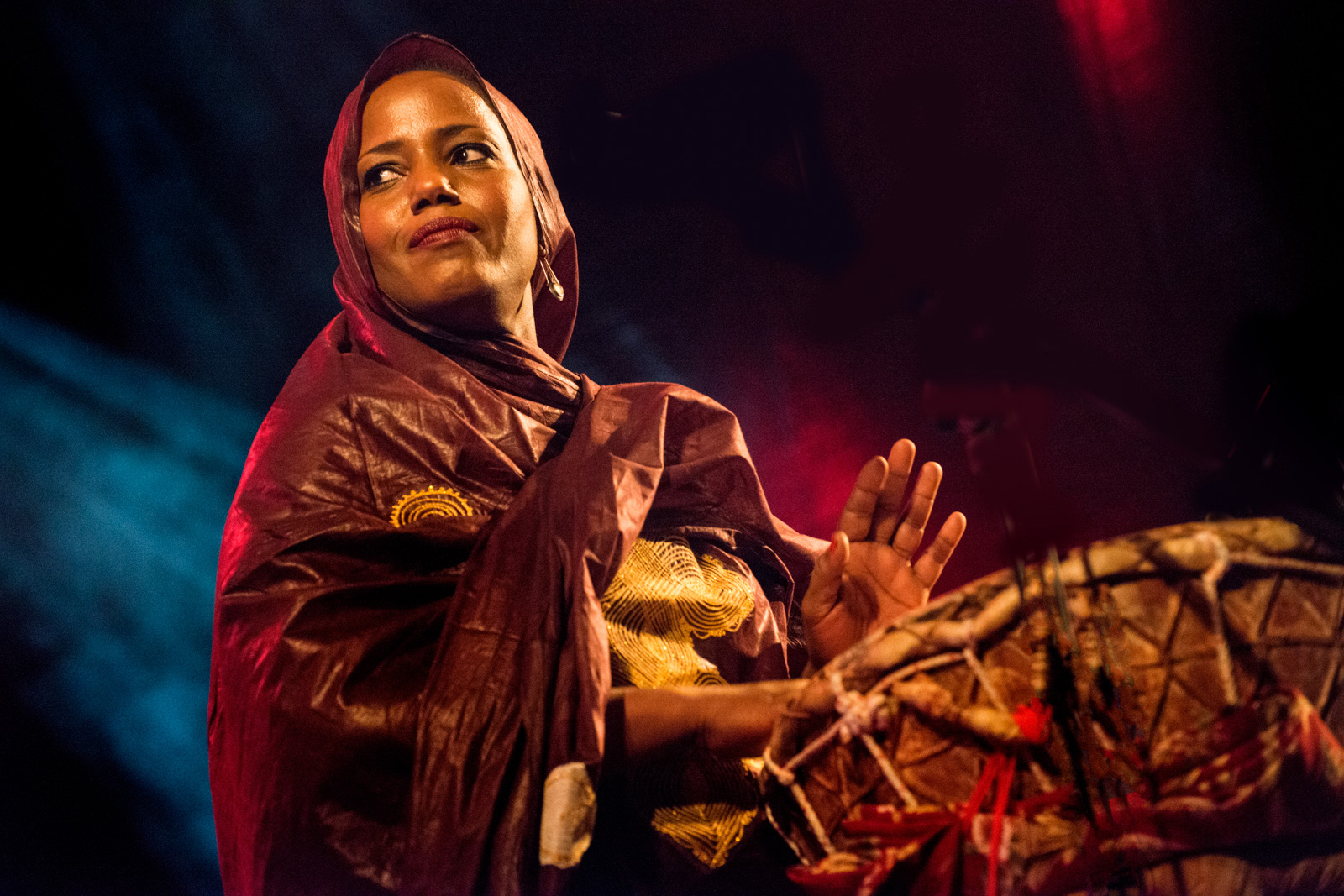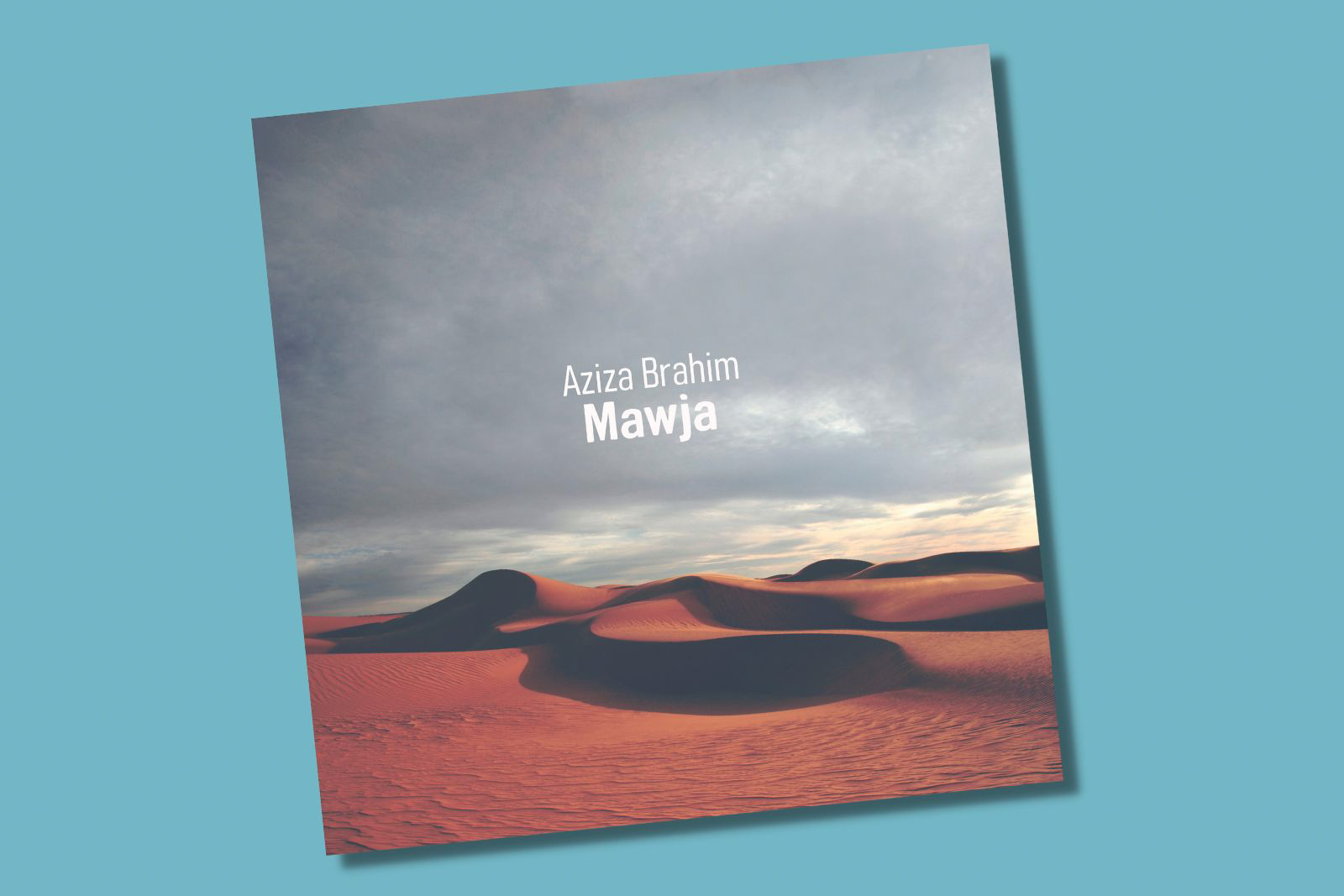A captivating blend of Spanish and Western Saharan sounds
Sahrawi singer Aziza Brahim’s latest album gives voice to five years of turmoil
–

The release of Aziza Brahim’s latest album, Mawja, marks the end of five tumultuous years. The Sahrawi singer’s previous LP, 2019’s Sahari, blended soaring vocals with experimental electronic production to create a lament for her people, whose homeland in the Western Sahara has long been occupied by neighbouring Morocco. The widespread critical acclaim it received allowed Brahim to book an extensive European tour.
Almost immediately, though, things began to fall apart. The Covid-19 pandemic forced the abrupt cancellation of live shows while, in November 2020, clashes between the self-proclaimed Sahrawi Arab Democratic Republic and Moroccan forces led to an ongoing war in the Western Sahara. Then, in 2021, Brahim’s greatest artistic influence, her grandmother Lkhadra Mint Mabruk, died.
“My grandmother was my school. She was a poet and made me realise that I had a voice. I learnt so much from her tenacity and conviction,” says Brahim, 47. “She died without seeing her dream of a free Western Sahara and it caused me to have a crisis of anxiety.”
Based in Barcelona for the past 14 years, Brahim found grief and fear casting a heavy weight upon her daily life. “Thankfully, it didn’t prevent me from making music,” she says. “Music has always been a refuge.”
Mawja — Hassaniya Arabic for “wave” — finds Brahim seeking comfort in Sahrawi folk traditions, including fast-paced, cyclical dabka rhythms and resonant tabal hand drums, and blending them with the music of Spain, drawing on the melodic intricacies of flamenco and incorporating rarely used heritage instruments.
“I combined [Sahrawi] elements with contemporary sounds like the Spanish guitar and Iberian percussion instruments like the almirez,” she says. “It was a deep melding of traditions.”

Teaming up with the German global music label Glitterbeat and Guillem Aguillar, her long-time co-producer and bass player, Brahim has poured all the intense emotions of recent years into Mawja. Across its 10 tracks the singer is in career-defining form. Her powerful voice cascades over clattering percussion on the opening Bein Trab U Lihjar, which references a Sahrawi game Brahim used to play as a child, and weaves yearningly through the delicate finger-picked acoustic guitars of Marhabna 2.1. Then it takes a sultry lower register on Bubisher, where Brahim employs an emotive vibrato to match Ignasi Cusso’s lyrical electric guitar work.
While Mawja has a different musical palette to much of Brahim’s previous work, it remains similarly focused on the memory of a lost Sahrawi homeland. “This album pays homage to my grandparents’ home, where I was raised. Their house was always filled with celebration and the sound of music from the radio,” Brahim says, recalling the refugee camp in Algeria where she was born and raised. “The passage of human life and the time the Sahrawis have been in exile are the themes that unify all the songs on Mawja.”
Brahim remembers becoming entranced by music during weekly sessions when her family would gather to sing Islamic spiritual songs. Soon after, she discovered artists such as the Mauritanian singers Dimi Mint Abba and Khalifa Ould Eide on a cassette her mother brought home from a trip to the country. That same tape also introduced her to the work of the legendary Malian guitarist Ali Farka Touré.
By the age of seven, Brahim knew that she had a voice capable of captivating crowds, setting her grandmother’s poems to music and singing them in front of family and friends. Music became a true passion, but at nine years old she was sent on an academic scholarship to Cuba, part of an initiative dating back to the 1970s in which Sahrawi students attend school in the country.
“When I stepped out of the airport I realised I had gone very far away and started to cry. It was the first time I was away from the desert and I missed my family,” she says.
Since her programme of studies in Cuba did not include music, Brahim returned to the refugee camp of her childhood in 1995, aged 19. That year, she entered and won a national song contest, held at the Sahrawi Arab Democratic Republic culture festival. With her career finally launched, Brahim spent the next two decades touring the world with groups ranging from the Sahrawi band Leyoad to pan-African fusionists Gulili Mankoo and the Basque folk collective Oreka Tx.
Brahim’s wide-ranging experiences of music and life have informed an effortless command of disparate genres that has become her signature. Nowhere is that more evident than on Mawja’s standout track Metal Madera, which combines the supple undulation of Malian blues with raw and powerful, punk-inspired percussion.
“I wanted drums that sounded like The Clash,” she says. “The drummer Andreu Moreno listened to a couple of their songs before we recorded and then did the recording in one take.”
The result of this omnivorous approach is a sense of pure musical freedom — one that mirrors Brahim’s desire for her people to, one day, also be able to make their own choices and live without limits.
“As time goes on, we have more and more against us,” she says. “But our determination as a people continues intact.”
Mawja by Aziza Brahim will be released on 23 February by Glitterbeat Records.
Topics
Get the Hyphen weekly
Subscribe to Hyphen’s weekly round-up for insightful reportage, commentary and the latest arts and lifestyle coverage, from across the UK and Europe
This form may not be visible due to adblockers, or JavaScript not being enabled.